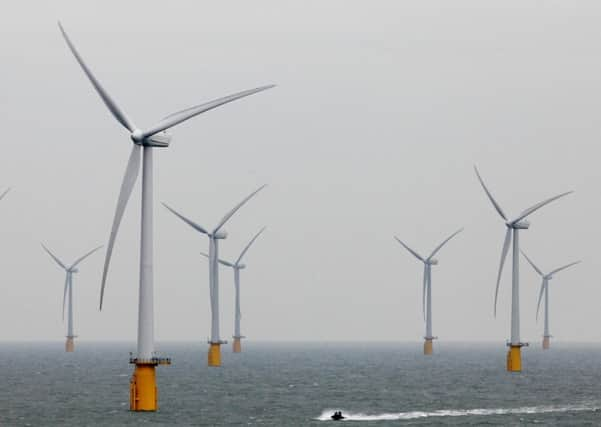Charlie Spencer: Energy crisis needs a long-term plan, not short-term political knockabout


Everyone understands the deep concern about rising bills but the issues involved are too fundamentally important to UK Plc for them to become a political football. The issues are also complex and that complexity is being lost in much of the debate and reporting.
The positions on both sides are flawed. Labour’s headline-grabbing pledge to freeze energy prices for 20 months if they are elected is regarded by many as unworkable and very thin on detail. It also, of course, does nothing about rising prices now.
Advertisement
Hide AdAdvertisement
Hide AdOn the other side, the Prime Minister’s recent statement about “rolling back” green levies within energy bills is alarming. Were this to become Government policy, without other compensatory changes to re-state a commitment to de-carbonising the economy, it could wreck planned investments running into billions of pounds in modernising the UK’s creaking energy infrastructure which would create tens of thousands of much-needed jobs, most of them in the North.
In our home city of Hull we are waiting for a decision by Siemens on whether they will commit to a £230m offshore wind turbine manufacturing facility which would be the first in the UK, bringing 700 direct jobs and thousands more in the supply chain. The current frenzied, unhelpful political climate makes that investment less likely to proceed.
Our company has been talking with power station owners for many months about investments running into hundreds of millions of pounds. Those investments are on hold, largely because of uncertainty over energy policy and support for renewable technologies.
The much-delayed Energy Bill continues to work its way through Parliament. This is a hugely important piece of legislation, vital for the UK’s economy, energy security and keeping the lights on. It would be disastrous if that fell victim to political point-scoring and early electioneering.
Advertisement
Hide AdAdvertisement
Hide AdInternational investors and markets need to know that they can trust Britain to have a long-term, strategic and consistent energy policy which recognises the huge scale of the necessary investments and the long time frames involved. The Government’s recent decision to support Britain’s first new nuclear power station in a generation is to be applauded. Such an approach needs to be seen across energy policy, to ensure that the UK has a secure, affordable, sustainable mix of energy sources to power the nation’s homes and businesses.
Meanwhile, politicians can act now to help consumers suffering from energy price rises. There is a remedy that seems, somehow, to have been missed. Currently, energy tariffs are structured so that the higher rates apply on the first part of energy bills. Therefore the tariff structure penalises those who use the least. Often these are the unemployed or those on low wages, as they cannot afford to be wasteful with energy.
For example, I live in a five-bedroom house in the Hull area and pay for my electricity on a single tariff of 11p per kilowatt hour (KWh). Elsewhere in Hull, people on low incomes will be paying 20p for most, if not all, of their electricity – almost twice as much for each unit of energy. That cannot be right.
Ministers should instruct Ofgem to use its regulatory powers to set a maximum tariff for the first part of energy bills. This could be set at 10p per KWh for the first two megawatts (mW) of electricity usage, around half the UK average annual domestic usage of 4mW. The typical price for electricity is currently 14.5p per kWh. A similar measure could be applied to gas and dual fuel bills.
Advertisement
Hide AdAdvertisement
Hide AdWe have done some modelling of the effect of this on electricity bills and the outcomes are encouraging. The model produces significant savings for those on lower incomes, even compared with the lowest currently available tariff of 11.5p per kWh.
The lowest earners would see a saving of £75 per year on their electricity charges. In reality, the majority of households will be on substantially higher tariffs, so the savings would be higher. We would expect a similar effect if such a model was applied to gas bills, or around twice as much of a saving for dual fuel customers.
We are a Living Wage employer and I would see this as a “Living Tariff” – a guarantee of affordable bills for those who are careful with their consumption.
This measure would benefit energy consumers with the most modest incomes and especially the more frugal and those at the lowest end of the income scale. Importantly, it would incentivise all consumers to use less energy and bring much-needed clarity to power bills.
Advertisement
Hide AdAdvertisement
Hide AdIt would be a sensible, practical and non-political way to rein in bills and combat fuel poverty, without damaging the UK economy and our potential to attract massive investment and job creation.
* Charlie Spencer is the chief executive and founder of the Hull-based Spencer Group which has substantial activities in the renewable energy sector.